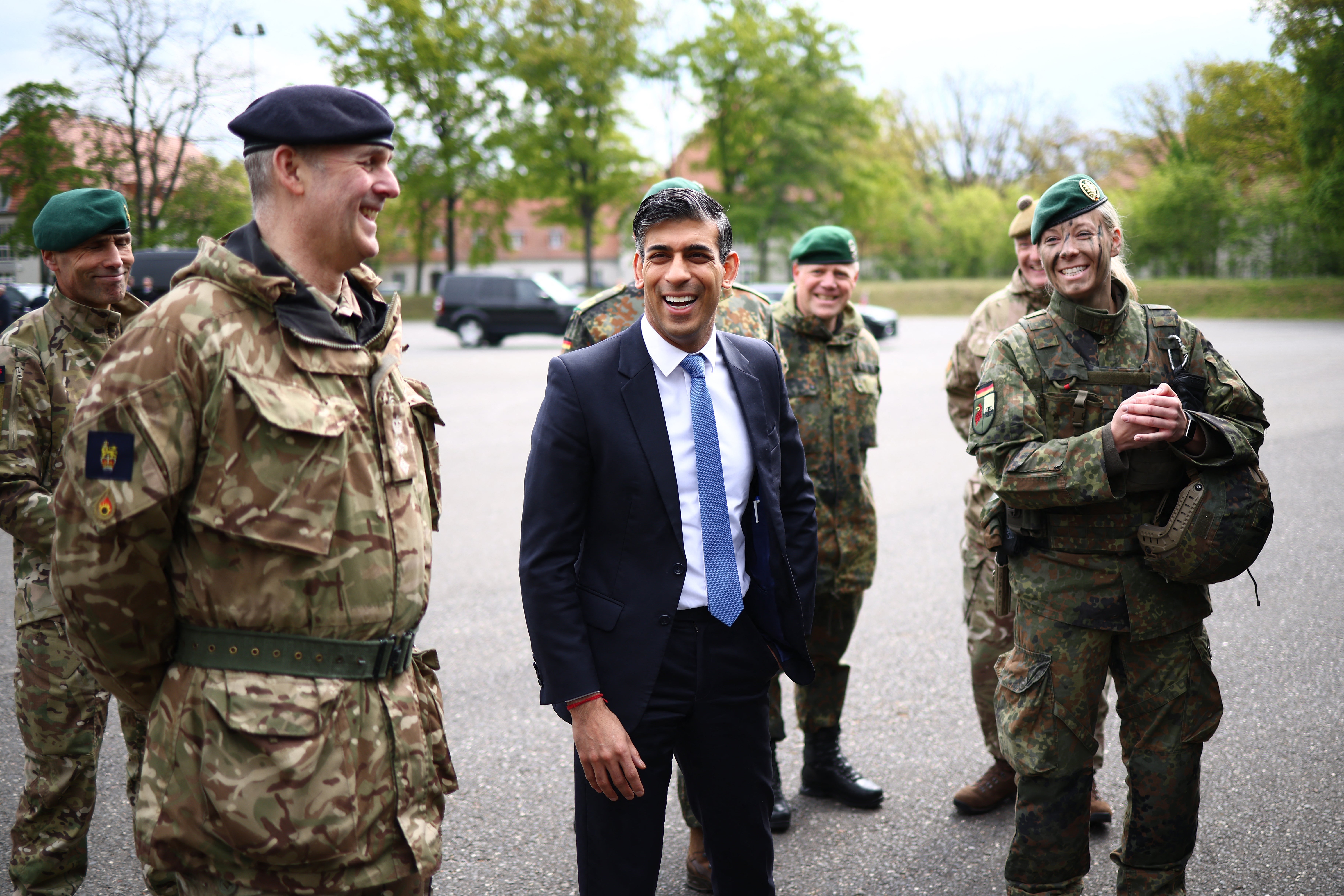Announcing a £75bn rise in military spending is the easy bit, Rishi
As Rishi Sunak struts the world stage, winning plaudits for his patriotic bolstering of Britain’s defence budget – and leaving others to field the tricky questions about which services to cut to pay for it all – Professor Tim Bale says the prime minister won’t be the last leader to court admiration abroad while being derided at home


Question: when is fully funded not fully funded? Answer: when your much-vaunted plan to significantly increase annual defence spending over six years is supposedly going to be financed from shrinking the size of the civil service and upping the MoD’s share of government research spending.
No one doubts that new geopolitical realities mean that the UK, like other European members of Nato, is going to have to devote more money to all things military. A combination of Russian revanchism, chaos in the Middle East, China’s rise, and a possible Trump presidency, mean that the post-Cold War “peace dividend” is long gone.
But, in stark contrast to the Cold War years, and with Brexit likely to have made the UK’s economic prospects especially bleak, we’re now in an era of low growth – or even no growth.
Back then, although The Jam’s 1980 smash ”Going Underground” warned we’d see “kidney machines replaced by rockets and guns”, higher average growth meant that, for the most part, there wasn’t a particularly pressing trade-off between anti-Soviet defence spending and the myriad demands placed on government budgets by the growth of an electorally popular welfare state.
Nowadays, however, those trade-offs are increasingly stark.
The NHS is, despite the best efforts of those who work in it, falling apart. Schools and universities (ditto) are struggling. Local authorities are going bankrupt. Social services and social care are in crisis. Our roads are potholed. Our railways are in a mess, too. Government borrowing is higher than expected, and higher than many think it should be.
And yet ministers are supposedly mooting yet more tax cuts in the hope – probably forlorn – that they can stave off what, at the moment anyway, looks like looming electoral disaster.
Against this grim backdrop, increasing defence spending by what in percentage terms may not seem that much (from 2.3 per cent this year, to 2.5 per cent by 2030) means that some £75bn is going to have to be found from other budgets – not least because the reduction in civil service headcount was already planned, and because the research spending that will be diverted to defence would otherwise have gone elsewhere.
The burden, then, is likely to fall on what economists have taken to calling the “unprotected departments” – a depressing euphemism for those parts of the state that, politicians hope, can take cuts without costing them as many votes as would be the case if they were to fall on, say, schools and hospitals.
But, given the dire state of the polls for the Conservative Party, even if the electorate does end up noticing, that’s unlikely to be Rishi Sunak’s or Jeremy Hunt’s problem anyway. By the time the trade-offs become glaringly obvious, they’re likely to be long gone and – in the prime minister’s case, perhaps – far away.
Still, if Sunak does end up sunning himself in Santa Monica, he will be able to recall with some fondness that he spent his last few months in Downing Steet doing his best to satisfy the hawks on the Tory benches and those voters who regard defence of the realm as the first and foremost duty of any government.
Moreover, with so many problems at home right now, it must come as a relief to be able to strut the world stage for a while. And, after all, he wouldn’t be the first (and won’t be the last) British prime minister to court admiration abroad while being derided at home.
For a likely election-loser on the lookout for a legacy or two, the Bible’s assurance that “a prophet is not without honour, save in his own country, and among his own kin, and in his own house” can prove a big source of comfort.
Professor Tim Bale is Professor of Politics at Queen Mary University of London, and author of ‘The Conservative Party After Brexit: Turmoil and Transformation’ (Polity, £25)






Join our commenting forum
Join thought-provoking conversations, follow other Independent readers and see their replies
Comments